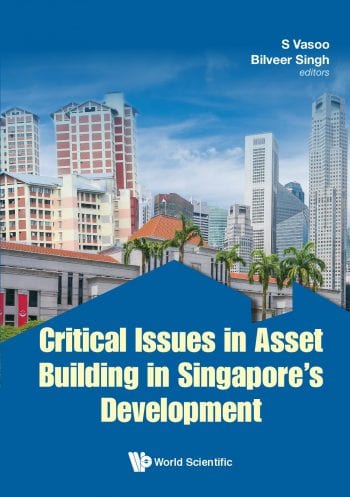Singapore’s Prime Minister Lee Hsien Loong spoke at the August 24 launch of the book “Critical Issues in Asset Building in Singapore’s Development.”
Professors S. Vasoo and Bilveer Singh at the National University of Singapore (NUS) edited the book. The lead chapter is by Michael Sherraden, director of the Center for Social Development at Washington University in St. Louis.
The book, published by World Scientific, examines asset-building policies through a series of essays that look at tangible as well as intangible assets. Lee noted that the editors defined the term “assets” broadly.
The essays examine tangible assets, such as housing and the Central Provident Fund, and such intangible assets as shared values and social norms.
“These intangibles hold us together as one people,” Lee said, according to a report in the Straits Times.
Sherraden writes that “asset building has become the backbone of Singapore’s strategy for social and economic development of households, with applications in housing, insurance protections, health care, education, and many other areas.”
He points out three challenges facing the inclusive asset building policy in Singapore. They are the aging population, technological transformations in money and financial services, and long-term protection of accumulated assets.
In Singapore, “asset building policy is not primarily about money, but rather about family and society development,” he writes. “Overall, the asset building policies defined by the CPF [Central Provident Fund] and its cousin schemes are a noteworthy achievement, playing a key role in strengthening families and communities and in building the nation. … At the same time, … no human endeavor is ever without challenges.”
Sherraden is the George Warren Brown Distinguished University Professor at Washington University. He has served as the S.R. Nathan Visiting Professor at the National University of Singapore (NUS), and is co-director of the Next Age Institute, which is a partnership between Washington University and NUS to study, design and test social innovations.
